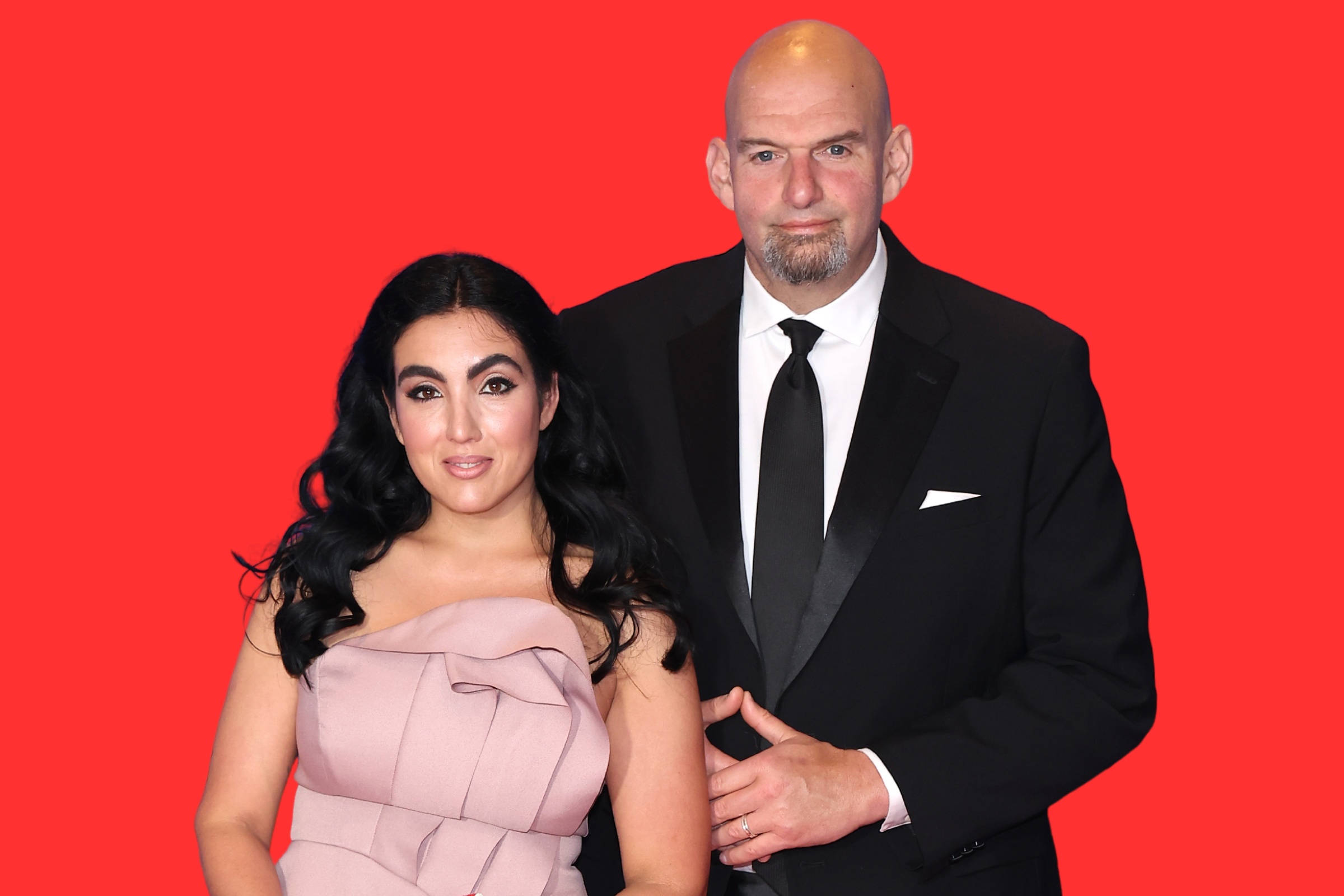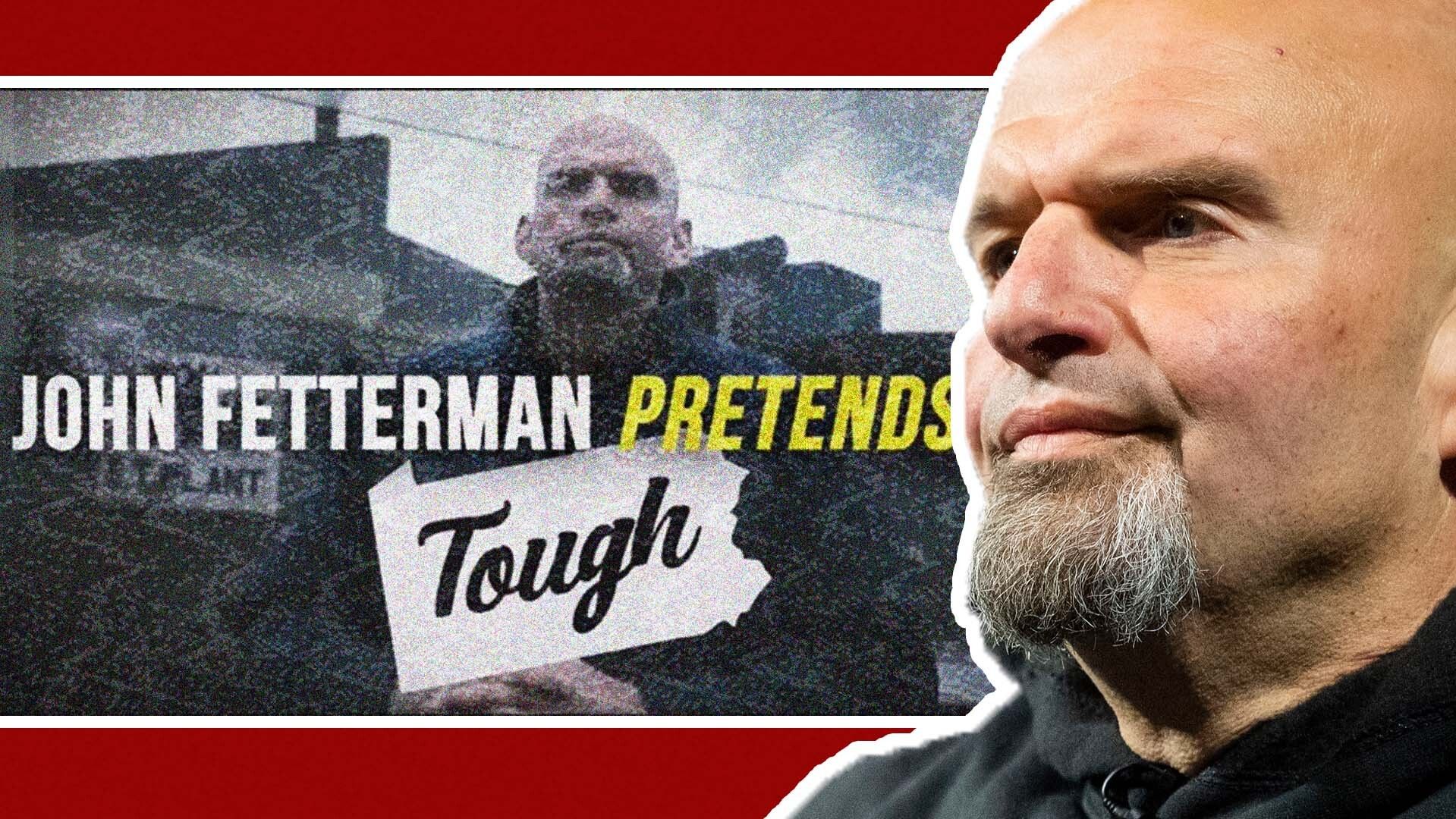John Fetterman, the prominent American politician and current U.S. Senator from Pennsylvania, has often been in the spotlight for his unconventional approach to public service and his progressive policies. However, behind every influential figure lies a foundation built by family, upbringing, and values—values often shaped by religion. John Fetterman’s parents, Karl and Carol Fetterman, have played a pivotal role in shaping his worldview, with their religious beliefs being a cornerstone of his early life. While John himself has not been overtly vocal about his religious practices, understanding his parents' faith offers a unique lens into his personal and political identity. This article explores John Fetterman’s parents’ religion, its influence on his life, and how it ties into his broader narrative as a public figure.
Religion, for many families, serves as a guiding force, shaping not only personal beliefs but also the ethical framework within which individuals operate. For the Fetterman family, faith has been a quiet yet significant presence. Karl and Carol Fetterman, both devout Christians, have roots in Protestant traditions, which have influenced their values of service, humility, and community engagement. These principles are evident in John Fetterman’s commitment to social justice and his advocacy for marginalized communities. While John may not align himself strictly with organized religion today, the moral compass instilled by his parents continues to resonate in his work.
In this article, we’ll delve deeper into John Fetterman’s biography, personal details, and the role his parents’ religion played in shaping his life. From exploring their faith to understanding how it intersects with his political career, this piece aims to provide a comprehensive overview. Additionally, we’ll address frequently asked questions about John Fetterman’s upbringing and beliefs, ensuring a well-rounded perspective on this intriguing aspect of his life.
Read also:Exploring The World Of Hanime New Trends Insights And More
Table of Contents
- Biography of John Fetterman
- Personal Details and Bio Data
- What Was John Fetterman’s Parents’ Religion?
- How Did John Fetterman’s Parents’ Religion Influence His Life?
- Did John Fetterman’s Parents’ Religion Shape His Political Career?
- The Role of Family Values in John Fetterman’s Upbringing
- Faith and Service: A Legacy of Giving Back
- Frequently Asked Questions About John Fetterman
Biography of John Fetterman
John Fetterman was born on August 15, 1969, in Reading, Pennsylvania, into a family deeply rooted in community service and social responsibility. His father, Karl Fetterman, was a successful businessman and philanthropist, while his mother, Carol Fetterman, dedicated much of her life to education and charitable causes. Growing up in a household that prioritized compassion, integrity, and hard work, John developed a strong sense of purpose early on. He attended Albright College in Reading before earning a master’s degree in public policy from Harvard University, setting the stage for his eventual entry into politics.
John Fetterman first gained national attention as the mayor of Braddock, a small, economically challenged town near Pittsburgh. During his tenure, he championed revitalization efforts, focusing on affordable housing, job creation, and healthcare access. His unorthodox style and grassroots approach earned him widespread acclaim, propelling him to the national stage. In 2022, he successfully ran for the U.S. Senate, defeating Republican candidate Dr. Mehmet Oz in a closely watched race. Today, John Fetterman is known for his progressive stance on issues such as criminal justice reform, climate change, and workers’ rights.
Personal Details and Bio Data
| Full Name | John Richard Fetterman |
|---|---|
| Date of Birth | August 15, 1969 |
| Place of Birth | Reading, Pennsylvania, USA |
| Parents | Karl Fetterman (Father), Carol Fetterman (Mother) |
| Education | Albright College, Harvard University |
| Political Party | Democratic Party |
| Occupation | Politician, U.S. Senator |
| Spouse | Gisele Barreto Fetterman |
| Children | Three |
What Was John Fetterman’s Parents’ Religion?
John Fetterman’s parents, Karl and Carol, were devout Christians who adhered to Protestant traditions. Their faith was not just a personal belief system but a way of life that emphasized service, humility, and compassion. Growing up in a household where religion played a central role, John was exposed to these values from a young age. The Fettermans attended church regularly and participated in various community initiatives aligned with their faith, including food drives, educational programs, and outreach efforts for underserved populations.
While specific denominational affiliations are not widely documented, it is clear that Karl and Carol Fetterman’s Christianity was rooted in action rather than dogma. They believed in putting their faith into practice by helping others and fostering a sense of community. This hands-on approach to religion left a lasting impression on John, who has often cited the importance of empathy and service in his own life. Though he may not identify as religious in a traditional sense today, the moral teachings of his parents’ faith continue to guide his actions and decisions.
How Did John Fetterman’s Parents’ Religion Influence His Life?
The influence of John Fetterman’s parents’ religion can be seen in his commitment to public service and his advocacy for marginalized communities. From his early days as the mayor of Braddock to his current role as a U.S. Senator, John has consistently prioritized policies that reflect the values of compassion, equity, and justice—values deeply ingrained in him through his parents’ faith. For instance, his focus on criminal justice reform aligns with the Christian principle of redemption, while his push for affordable healthcare mirrors the biblical call to care for the sick and vulnerable.
Beyond policy, John’s personal interactions also reflect the teachings of his parents’ religion. Known for his down-to-earth demeanor and accessibility, he embodies the humility and kindness that his parents modeled through their faith. Whether it’s attending local events, engaging with constituents, or simply listening to their concerns, John demonstrates a genuine desire to serve others—a hallmark of his upbringing. This blend of faith-inspired values and practical action underscores the profound impact his parents’ religion has had on his life.
Read also:Who Is Kash Patels Wife A Detailed Look Into Her Life And Influence
Did John Fetterman’s Parents’ Religion Shape His Political Career?
John Fetterman’s political career is a testament to the enduring influence of his parents’ religion. While he may not explicitly frame his policies in religious terms, the ethical framework provided by his parents’ faith is evident in his approach to governance. For example, his advocacy for criminal justice reform reflects the Christian belief in second chances and rehabilitation. Similarly, his support for workers’ rights and environmental sustainability aligns with the biblical mandate to care for both people and the planet.
Moreover, John’s emphasis on inclusivity and representation can be traced back to the inclusive nature of his parents’ faith. Karl and Carol Fetterman instilled in him the importance of treating all individuals with dignity and respect, regardless of their background. This principle is evident in John’s efforts to amplify the voices of underrepresented groups and address systemic inequalities. By translating his parents’ religious values into tangible action, John Fetterman has carved out a unique niche in American politics—one that prioritizes humanity over partisanship.
How Does Faith Play a Role in Modern Politics?
In today’s polarized political landscape, the intersection of faith and politics remains a complex and often controversial topic. For figures like John Fetterman, whose parents’ religion has subtly shaped their worldview, navigating this terrain requires a delicate balance. On one hand, faith can serve as a source of inspiration, motivating leaders to pursue policies that uplift the disadvantaged and promote social justice. On the other hand, overtly religious rhetoric can alienate those who do not share the same beliefs or who view religion as a private matter.
John Fetterman’s approach offers a compelling case study in how faith can inform political action without becoming divisive. By focusing on universal principles such as compassion, fairness, and service, he bridges gaps between different ideologies and fosters a more inclusive dialogue. This strategy not only honors his parents’ religious legacy but also demonstrates the potential for faith to unite rather than divide in the public sphere.
The Role of Family Values in John Fetterman’s Upbringing
Family values were at the core of John Fetterman’s upbringing, with his parents’ religion serving as a guiding force. Karl and Carol Fetterman instilled in their children the importance of hard work, integrity, and empathy. These values were reinforced through daily practices, such as volunteering at local charities, attending church services, and engaging in meaningful conversations about social issues. As a result, John grew up with a strong sense of responsibility to contribute positively to society.
One notable aspect of the Fetterman household was its emphasis on education and intellectual curiosity. Both Karl and Carol encouraged their children to think critically and question the status quo, traits that would later define John’s political career. Additionally, the family’s commitment to service extended beyond their immediate community, as they often supported causes that addressed broader societal challenges. This holistic approach to family values laid the groundwork for John’s lifelong dedication to public service.
Faith and Service: A Legacy of Giving Back
For John Fetterman, faith and service are inextricably linked—a legacy passed down from his parents. Karl and Carol Fetterman’s religious beliefs were not confined to the walls of a church; instead, they manifested in tangible ways that improved the lives of those around them. Whether it was organizing food drives, mentoring young people, or advocating for educational opportunities, the Fettermans lived out their faith through action. This example set a high standard for John, who has carried forward this tradition in his own career.
Today, John Fetterman continues to embody the spirit of giving back. As a U.S. Senator, he champions policies that address systemic inequities and empower marginalized communities. His work reflects the same selflessness and dedication to service that defined his parents’ lives. In doing so, he not only honors their memory but also ensures that their legacy of faith and compassion endures for future generations.
Frequently Asked Questions About John Fetterman
What religion are John Fetterman’s parents?
John Fetterman’s parents, Karl and Carol Fetterman, were devout Christians who adhered to Protestant traditions. Their faith emphasized service, humility, and compassion, which significantly influenced John’s upbringing and values.
Does John Fetterman practice religion?
While John Fetterman does not publicly identify with any specific religious denomination, the moral teachings of his parents’ faith continue to shape his worldview and guide his actions. He often emphasizes values such as empathy, equity, and service, which align with his parents’ religious principles.
How has John Fetterman’s upbringing impacted his political career?
John Fetterman’s upbringing, deeply rooted in family values and his parents’ religion, has profoundly influenced his political career. His commitment to social justice, inclusivity, and public service reflects the ethical framework instilled by his parents, making him a champion for marginalized communities.
Conclusion
John Fetterman’s parents’ religion serves as a foundational element of his identity and career. Through their faith, Karl and Carol Fetterman imparted timeless values of service, humility, and compassion, which continue to resonate in John’s work as a U.S. Senator. By translating these principles into action, he has carved out a unique path in American politics—one that prioritizes humanity and equity above all else. As we reflect on his journey, it becomes clear that faith, when paired with purpose, can inspire meaningful change and leave a lasting legacy.
For further reading on the intersection of faith and politics, consider exploring resources such as Pew Research Center’s Religion & Public Life, which provides valuable insights into this dynamic relationship.

